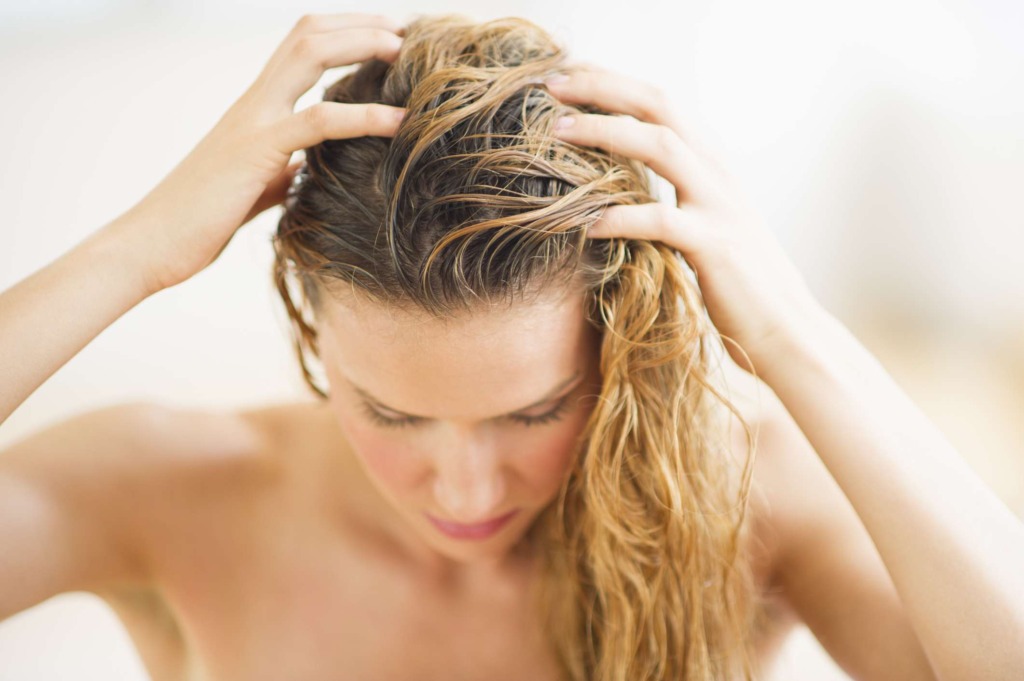Health and Beauty
7 min read
Maintain Healthy Hair Naturally: A Complete Guide
October 08 , 2025
By Sharib

Not all foods contribute to the health of your hair. Since hair is mainly composed of protein, diets low in protein will cause hair to weaken, thin, and break. To give your hair the amino acids necessary for hair growth, include eggs, lentils, beans, and nuts in your diet. Apart from protein, hair also requires vitamins and minerals. Iron helps red blood cells transport oxygen to the hair follicles, and zinc helps with repair and strengthens hair. Biotin, a B vitamin, is known to help increase hair strands, while vitamin C aids the body in iron absorption. Nutrition for hair health also includes hydration. A dehydrated body can cause hair to become dry, brittle, and develop split ends. Drinking enough water daily will nourish the hair follicles and promote a healthy scalp. Healthy fats, especially omega-3s, play a crucial role in maintaining the moisture balance of the scalp and hair. Foods high in antioxidants will help protect your hair from oxidative stress and strengthen the strands. Foods high in antioxidants include berries, spinach, and green tea.
1. Caring for Your Scalp
Since the scalp is where hair grows, it is essential to take care of it first. A scalp that is clean, properly nourished, and healthy provides the ideal environment for the hair follicles to function optimally. Things as simple as gentle scalp massages help boost circulation and bring oxygen and nutrients to the hair roots. Even a few minutes of gentle massage each day, with or without natural oils, can encourage growth and help reduce stress. You should exfoliate the scalp every few weeks to help remove the buildup of dead skin, oils, and styling products. Sugar and aloe natural scrubs, as well as rosemary or green tea herbal rinses, are simple and gentle, effective cleansers. Keeping the follicles open and responsive is part of healthy scalp care. A healthy scalp is less likely to develop dandruff and irritations that can disrupt growth cycles. Treating the scalp like the skin on your face is essential to ensure the roots remain active and strong.
2. Gentle Cleansing and Moisture Balance
Even washing your hair can be a complicated process. The way you cleanse and condition your hair can significantly impact the health of your strands. Many shampoos are sulfate shampoos. These are strong detergents that strip your hair of its natural oils. They clean your hair and scalp effectively and are formulated to be sulfate-free. However, your hair and scalp will be dry and frizzy. Picking sulfate-free shampoos or mild cleansers will help retain some of your scalp's protective oils while still removing dirt. For those with curly or textured hair, co-washing with conditioner alone has become a popular method for maintaining moisture. When it comes to washing your hair, there's no one-size-fits-all. Oily scales will require a wash every other day, while those with dry or curly hair will benefit from washing only once or twice a week. Conditioners should be applied to the mid-lengths and ends of your hair only. These are the oldest and most fragile parts of your hair. Leaving a conditioner or using natural hydrators such as aloe vera will offer extra protection. The most important thing is balance. You should be gentle enough to preserve your scalp's natural barrier, yet clean enough to avoid scalp buildup.
3. Natural Oils and Masks
To keep hair strong and shiny, nature provides robust solutions. Oils are among the oldest and most trusted treatments. For weak or damaged strands, coconut oil is an ideal choice because it penetrates the shaft and helps reduce protein loss. Argan oil improves the condition of your hair because it is high in vitamin E and fatty acids. For the hair and skin, castor oil promotes thicker growth, and rosemary oil enhances circulation under the scalp when massaged in. Removing oils after a few hours of use, once or twice a week, unclogs the pores and provides nourishment. Another simple way to restore softness is by using hair masks. Yoghurt masks provide protein, honey retains moisture, and aloe vera eases irritation and smooths the cuticle. For dry hair, a moisturising mask can be made by mixing avocado and olive oil. These treatments are safe, cost-effective, and easy to prepare, making them kitchen staples. Regular use of oils and masks significantly reduces hair breakage and adds a noticeable, healthy shine.
4. How to Prevent Hair Damage
Daily habits affect hair health more than you think. Using heat styling tools too often weakens the keratin in your hair, leaving it brittle. To help your hair regain its strength, try limiting the use of blow-drying, straightening, or curling tools. If you must use heat, make sure you apply a protective serum to create a barrier against damage. In addition to causing weak, brittle hair, the sun can also fade hair colour. To top it off, the sun and pollution can cause hair to break and dry. Wearing a hat or scarf can protect hair from these negative environmental stressors. Night routines can also help protect hair. Sleeping on a cotton pillowcase can cause friction breakage. This occurs when hair rubs against the surface, causing split ends. Switching to a silk pillowcase or wrapping your hair in a silk scarf helps retain the natural oils in your hair. Using protective styles like braids or buns also helps minimise tangling and keeps ends tucked away. These simple changes help keep hair strong and maintain a smooth appearance. Keeping your hair smooth means less stress, less damage, and less tangling.
5. Lifestyle and Long-Term Care
The state of one's hair can indicate a person's well-being. Hair loss can occur with chronic stress because stress forces hair follicles into a dormant phase. Finding a way to trigger the relaxation response can be significant in managing stress. Sleeping well can help the body, including hair follicles, repair and regenerate. Exercise can also help with repair and increase circulation to the scalp. Unhealthy habits, such as smoking and using hair dyes, can counteract the benefits of natural hair care. Smoking and excessive use of hair dyes can reduce scalp circulation and damage the hair cuticle, respectively. Exposing hair to harsh dyes can be substituted with less harsh natural dyes, such as henna. Herbal dyeing is recommended because it protects the hair from damage. Regular haircuts, every 6 to 8 weeks, help control split ends. The most important thing is consistency. There is a time lapse of 4 to 12 weeks to see the effects of natural hair care due to the rate of hair growth. The best way to track the time lapse is by photographing the hair. Despite all the good care, if hair loss persists, it is recommended to consult a dermatologist to rule out thyroid imbalance or nutrient deficiency.
When it comes to caring for your hair, avoid the quick fixes. Strong hair requires a steadfast, healthy routine for your body. For healthy hair, adopt a nutritious diet, practice good hydration, gently cleanse your hair, and use protective hairstyles. Additionally, consider incorporating scalp massages to detoxify your hair strands. With healthy routines, your hair will be strong and shiny. Focused lifestyle choices and regular hair trims will help your hair remain vibrant and resilient over time. It will take time and consistency to see the effects, but with healthy, natural routines, the benefits are enduring!
live smarter
Shop smarter, live better, and stay ahead of the trends with our reliable recommendations!
trending
Health and Beauty
5 min read
Sihoo: Comfortable Chairs That Make Work and Study Easier
Health and Beauty
5 min read
Health Made Simple with Elavate
Health and Beauty
5 min read
Polar Haircare: Simple Hair Care for Everyday Life
Health and Beauty
6 min read
Natural Wellness Support for Daily Strength and Healthy Living
Health and Beauty
7 min read






